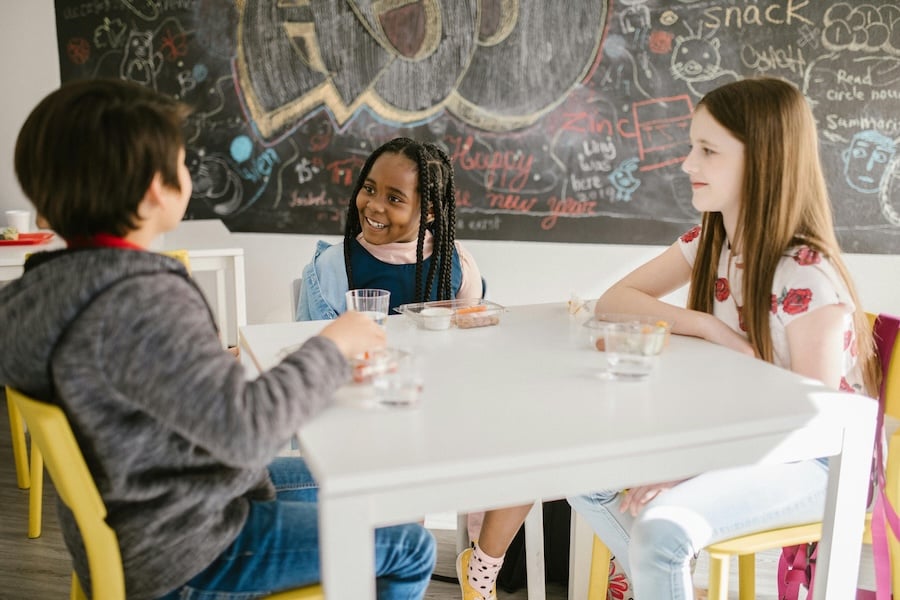In classrooms across the country, a quiet revolution is taking place. Teachers and educators are expanding their lessons beyond math and reading to include something just as essential: Social Emotional Learning (SEL). At the heart of SEL are five key areas, known as the core SEL competencies. These competencies form the foundation for helping children develop into compassionate, responsible, and resilient individuals.
Let’s take a closer look at what each of these SEL competencies means, how they show up in everyday learning, and why they matter so much—both in the classroom and beyond.
What Are SEL Competencies?
SEL competencies are research-backed areas of development that support a child’s ability to understand and manage emotions, build strong relationships, and make thoughtful decisions. Developed by the Collaborative for Academic, Social, and Emotional Learning (CASEL), the five competencies are:
- Self-awareness
- Self-management
- Social awareness
- Relationship skills
- Responsible decision-making
These areas offer a framework for educators to build a supportive and emotionally intelligent classroom culture. The following outlines why these competencies matter and the ways they can be incorporated into classrooms.
1. Self-Awareness: Knowing Yourself
Self-awareness is the ability to recognize your emotions, thoughts, and values—and understand how they influence behavior.
For example, a student who realizes they’re feeling frustrated before a test is practicing self-awareness. With that insight, they can use tools to calm themselves before it escalates into anxiety or avoidance.
Children who develop strong self-awareness are more confident and more likely to advocate for their needs. They learn to identify their strengths and areas for growth, which supports academic performance and overall well-being.
Support it in your classroom with:
- The Feelings Poster: Tools of the Heart
- Activities that can include journaling, vision boards and strength spotting
2. Self-Management: Handling Emotions and Behaviors
Self-management is the ability to regulate emotions, control impulses, and persist in the face of challenges.
This competency helps students manage stress, delay gratification, and maintain focus—especially when things get tough. Whether they’re taking turns in group work or bouncing back from a low grade, self-management empowers kids to respond rather than react.
This doesn’t mean kids will never feel upset or angry—it means they learn how to manage those big feelings in healthy, productive ways.
Encourage self-management with:
- The Empty Balloon Exercise
- Breathing techniques and mindfulness activities from Tools of the Heart
3. Social Awareness: Understanding Others
Social awareness involves recognizing and respecting the feelings, perspectives, and experiences of others.
It’s what allows students to build empathy, appreciate differences, and act with kindness. In diverse classroom settings, social awareness is key to creating inclusive environments where every student feels like they belong.
This skill helps students understand how their actions affect others—and encourages them to respond with compassion.
Foster social awareness through:
- Respect Differences curriculum
- Activities that explore culture, identity, and inclusion
- Discussions that normalize different points of view
4. Relationship Skills: Connecting with Others
From making friends to working in teams, relationship skills help children form positive connections and resolve conflicts peacefully.
These skills include active listening, clear communication, cooperation, and conflict resolution. When students develop relationship skills, they learn how to build trust, handle disagreements, and support one another.
Practice relationship skills with:
- Peace Path with Tutorial
- Peacemaker Training Certification
- Role-playing common peer conflicts and resolutions
5. Responsible Decision-Making: Choosing Wisely
Responsible decision-making involves making thoughtful, ethical, and constructive choices about personal and social behavior.
This competency teaches children to evaluate situations, consider consequences, and reflect on their values. It’s the difference between reacting impulsively and choosing with intention.
As students grow, these skills become vital for resisting peer pressure, setting boundaries, and navigating real-life situations with confidence and integrity.
Nurture decision-making skills with:
- Class agreements and reflection-based discussions
- Opportunities to make choices and evaluate outcomes
Why SEL Competencies Matter
When SEL is woven into the fabric of daily classroom life, students thrive. These five SEL competencies equip students not only to succeed academically, but also to grow into caring, capable, and community-minded people.
Educators who center these competencies help children learn how to:
- Understand themselves and others
- Express emotions constructively
- Navigate conflict with empathy
- Make thoughtful decisions
- Create stronger relationships with peers and adults
And when that happens, classrooms transform into places of safety, connection, and possibility.
Bring SEL Competencies to Life with Soul Shoppe
At Soul Shoppe, we offer engaging, age-appropriate resources to help teachers bring these core competencies into their classrooms with ease and heart.
Explore our full range of programs and tools to support SEL:
- Tools of the Heart – Our foundational SEL course for K–6 students
- Free to Be – A curriculum focused on anti-bullying and self-worth
- Respect Differences – Promoting inclusion, kindness, and empathy
- Planet Responsibility – Encouraging accountability and thoughtful decision-making
- Peacemaker Training – Building leaders who model positive communication
- The Empty Balloon – A calming, creative tool to manage big feelings
- Feelings Poster – Empowering students to name and navigate emotions
And don’t forget to visit our blog for free SEL resources and ideas.
Empowering the Whole Child
Teaching the five SEL competencies is more than just a checklist—it’s an invitation to create a classroom rooted in compassion, self-discovery, and resilience. When children feel seen, supported, and capable, they carry that confidence with them for life.
Social Emotional Learning helps kids become the kind of people who make the world a better place—and that’s a lesson worth teaching every day.


